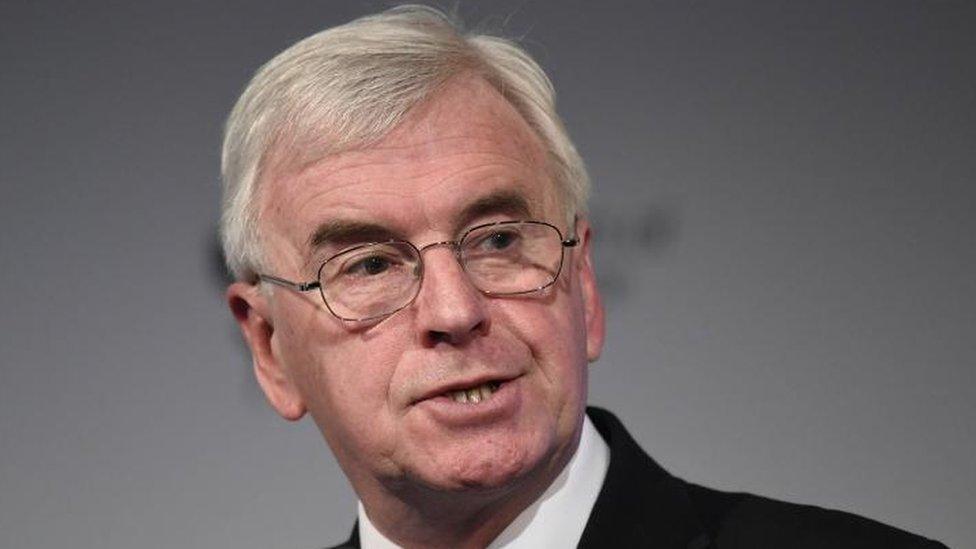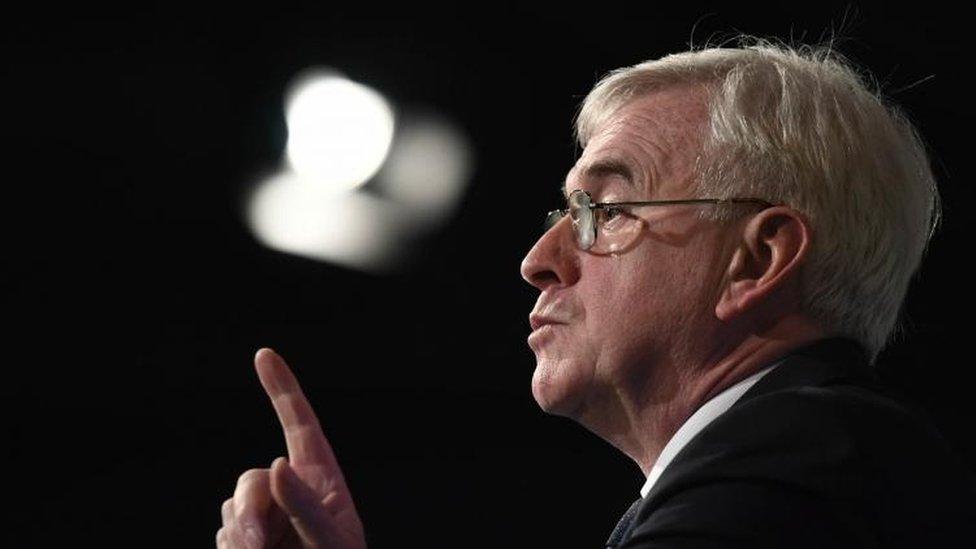McDonnell: UK economy 'still scraping the bottom'
- Published
- comments

He is the shadow chancellor not shy of a word that would have made Tony Blair blanch.
John McDonnell, the shadow chancellor, has said that Britain could become a "socialist country".
He said it was time for radical changes on investment and tax to make the UK fairer and more equal, and "rescue" public services.
In an interview with the BBC ahead of the Spring Statement next week, Mr McDonnell said that Philip Hammond should use the opportunity to announce the end of austerity.
And that the government should say it would spend more on public services - particularly children's services which he said were facing a £2bn funding crisis.
Mr Hammond has made it clear that next week's statement will not be a "mini-Budget" and it is unlikely to contain any changes to tax and spending.
In fact, next Tuesday's event could well contain some better economic news, with many economists suggesting that the official economic watchdog, the Office for Budget Responsibility, will upgrade its growth forecasts for this year.
And will say that the public finances are in better shape than it previously predicted.
'Michael Fish moment'
Mr McDonnell said the economy was still "scraping the bottom" and that there was such an emergency in the public services, the chancellor should make new spending commitments.
"I think this is, for the chancellor, his Michael Fish moment," Mr McDonnell told me.
"You know there's a storm, there's a blizzard going on out there in terms of our public services, our local authorities are in crisis - not me saying that, but Conservative council leaders saying they've got a financial crisis in their area.
"He needs to start listening to what's happening on the ground."
In a speech later today, Mr McDonnell will accuse the government of "shifting the burden of austerity" on to councils.
He will say that local authorities have lost 795,000 jobs since 2010 and that cuts have bitten deeply.
Councils were being used as "human shields" to push through spending reductions, he will argue.
Yesterday a report by the National Audit Office revealed that one-in-10 local authorities had used funds reserved to provide a buffer of support during times of stress to pay for adult social care provision.
The government responded by saying that council resources were being reviewed and that funding was being increased over the next two years.
I asked Mr McDonnell how he proposed to solve the crisis and if that required more spending.
"We want a fair taxation system, so yes on the top 5% [of earners], we're asking to pay a bit more.
"We also want to reverse not all but some of the corporation tax cuts that have taken place."
'Radically fairer'
Mr McDonnell said that no-one should mistake his round of meetings with banks like Barclays and fund managers in the City (the so called "Rich Tea offensive" of discussions over biscuits of Labour's economic policies) with a reduction in his radicalism.
What does being "a socialist" mean, I asked him.
"It means to create a society that's radically fairer, radically more equal, radically more democratic, based upon a prosperous economy, but where that economy is sustainable, economically and environmentally, and here's the difference between us and the Conservatives, where that prosperity is shared by everybody."
Do you think Britain could become a socialist country?
"Yes."
- Published8 March 2018

- Published6 March 2018